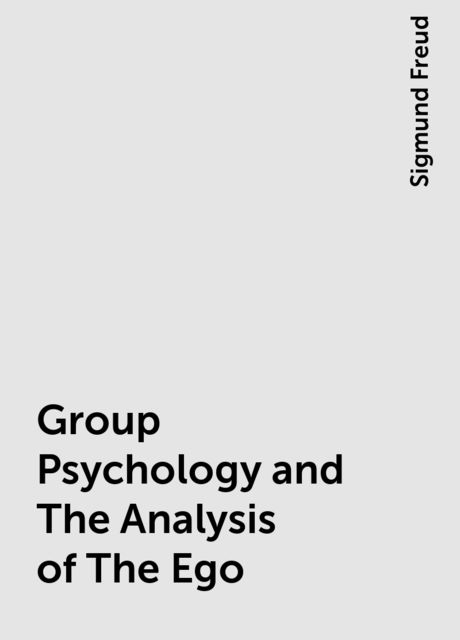Group Psychology and The Analysis of The Ego
- Om
- Citat31
- Läsare1.7K
- I bokhyllorna
- Relaterade böcker
129 trycksidor
Citat
- Chris Younghar citeratför 8 år sedanLe Bon speak for himself. He says: 'The most striking peculiarity presented by a psychological group[3] is the following. Whoever be the individuals that compose it, however like or unlike be their mode of life, their occupations, their character, or their intelligence, the fact that they have been transformed into a group puts them in possession of a sort of collective mind which makes them feel, think, and act in a manner quite different from that in which each individual of them would feel, think, and act were he in a state of isolation. There are certain ideas and feelings which do not come into being, or do not transform themselves into acts except in the case of individuals forming a group. The psychological group is a provisional being formed of heterogeneous elements, which for a moment are combined, exactly as the cells which constitute a living body form by their reunion a new being which displays characteristics very different from those possessed by each of the cells singly.' (p. 29.)[4]
- Chris Younghar citeratför 8 år sedanThe contrast between social and narcissistic—Bleuler would perhaps call them 'autistic'—mental acts therefore falls wholly within the domain of Individual Psychology, and is not well calculated to differentiate it from a Social or Group Psychology.
- Алина Баймамадоваhar citeratför 12 år sedanfive 'principal conditions' for raising collective mental life to a higher level.
The first and fundamental condition is that there should be some degree of continuity of existence in the group. This may be either material or formal; the former, if the same individuals persist in the group for some time; and the latter, if there is developed within the group a system of fixed positions which are occupied by a succession of individuals.
The second condition is that in the individual member of the group some definite idea should be formed of the nature, composition, functions and capacities of the group, so that from this he may develop an emotional relation to the group as a whole.
The third is that the group should be brought into interaction (perhaps in the form of rivalry) with other groups similar to it but differing from it in many respects.
The fourth is that the group should possess traditions, customs and habits, and especially such as determine the relations of its members to one another.
The fifth is that the group should have a definite structure, expressed in the specialisation and differentiation of the functions of its constituents.
According to McDougall, if these conditions are fulfilled, the psychological disadvantages of the group formation are removed.
fb2epub
Dra och släpp dina filer
(upp till fem åt gången)


